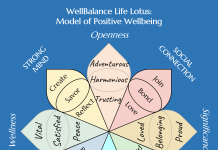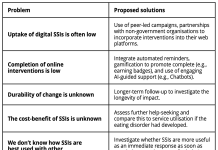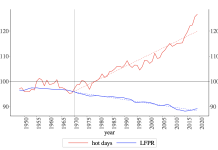Open Access Government produces compelling and informative news, publications, eBooks, and academic research articles for the public and private sector looking at health, diseases & conditions, workplace, research & innovation, digital transformation, government policy, environment, agriculture, energy, transport and more.
Home 2026
Archives
Mental health in the health workforce
Auckland University of Technology Associate Professor Dianne Wepa’s research found that mental health in the health workforce is influenced by how workplace cultures either promote or hinder psychological safety.
Wellbalance elevates coaching through the science of personalized wellbeing
WellBalance’s “Wellbeing Balance and Lived-Experiences Model of Positive Wellbeing”, developed by Harvard-trained scientist Troy W. Norris, is the first scientifically validated experiential model of wellbeing.
ChatGPT and suicide: Prevention in the age of digital technology
Konrad Michel examines the growing relevance of digital technology and AI in impacting suicide and mental health issues, along with efforts to improve AI management to better protect vulnerable people.
Youth suicide: An overview
Professor Deborah Winders Davis from the University of Louisville School of Medicine discusses the prevalence, risk factors, and stigma associated with youth mental health and suicide, emphasizing the importance of raising awareness and developing intervention strategies to tackle the critical issues facing young people.
Paternal perinatal mental health: Barriers to help-seeking
Deborah Da Costa, PhD, Associate Professor at the Department of Medicine, McGill University, Scientist at McGill University Health Centre, details the benefits and barriers to paternity leave uptake by fathers following the birth of a child.
Consultations with professional groups to improve filicide intervention
Professor Emeritus AM Thea Brown highlights the importance of education and resources among agencies to recognise warning signs of potential filicide and calls for better intervention strategies to protect children.
Co-occurring disorders and the need for a research network
The treatment of patients with pain and co-occurring disorders presents a significant knowledge gap that necessitates a strong infrastructure for conducting representative clinical trials. Norm Buckley from the Michael G. DeGroote Institute for Pain Research & Care explains.
Removing systemic barriers to register overseas trained doctors in New Zealand while preventing their...
Dr Charles Mpofu and Dr Dianne Wepa discuss removing systemic barriers for overseas-trained doctors registering in New Zealand while also addressing mental health challenges.
Personalizing wellbeing interventions in the digital era
Troy W. Norris’ WellBalance Institute is advancing the science of positive psychology and wellbeing to create personalized plans and practical tools to build happy, flourishing, and resilient lives, workplaces, and communities
Rational use of psychotropic medications in youth
This article examines a holistic approach to youth mental health care and discusses the concept of ‘deprescribing’ as a systematic method for assessing the necessity and risks associated with the continued use of medication.
Prevention of eating disorders with single session interventions: Hype or promise?
Is reducing the risk of eating disorders with single session interventions a hype or a promise? Tracey Wade at the Flinders University Institute for Mental Health and Wellbeing investigates.
Compassion starts within: Mental health and wellbeing for healthcare professionals
With burnout being common among healthcare professionals, Dr Dianne Wepa and Tanya Levin discuss practical strategies for supporting the mental health of healthcare workers.
Challenges in diagnosing and treating ADHD
Professor Deborah Winders Davis from the University of Louisville School of Medicine outlines the challenges in diagnosing and treating attention deficit hyperactivity disorder.
Refugee integration – Thoughts about what NOT to say and do
In the article, Philipp C. Wichardt highlights the importance of empathy in addressing anxiety about refugee movements. He argues that dismissing these fears is unhelpful; instead, acknowledging and validating them fosters connection and openness, ultimately reducing tensions and promoting integration.
Early intervention in the treatment of people with eating disorders
Tracey Wade from Flinders University highlights the benefits of early interventions for eating disorders. She notes that brief interventions during waiting periods can boost treatment completion rates, and early symptom improvements can lead to better outcomes.
Climate change and the rise of adult male dropouts
Masahiro Yoshida from Waseda University’s Department of Political Science and Economics explores the link between global warming and male labor force participation.
A call to health policymakers for new directions in suicide prevention and research
Konrad Michel, Professor Emeritus and suicide researcher, argues for a shift away from the traditional medical model of suicide prevention and emphasizes the need to reach the many who don’t see their suicidal thoughts as a mental health issue.
Examining childhood multimorbidity: How crucial is studying early life multimorbidity?
Understanding multimorbidity in childhood, where physical and mental health conditions coexist, is crucial. This interview with Dr. Mark Ferro, Canada Research Chair in Youth Mental Health at the University of Waterloo explores its unique challenges compared to adult research, the need for integrated care, key predictors, and vital research directions.
Ultrasound neuromodulation for treatment-resistant depression: A case for deep brain stimulation
Tiago Costa from Delft University of Technology discusses why ultrasound neuromodulation has significant potential to transform the treatment of depression.
Mental health research: The healing power of indigenous drumming
Gilles Comeau, Senior Scientist at the University of Ottawa, Institute of Mental Health Research at The Royal, explores the healing power of Indigenous drumming
Drumming...





















